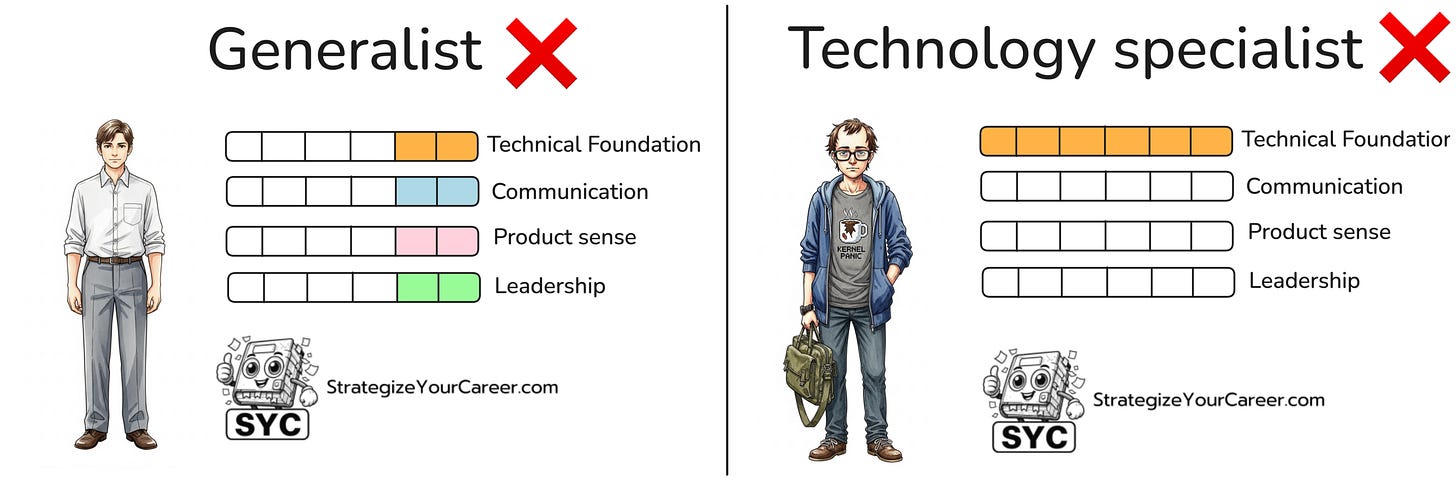Stop trying to be the best at one thing. Do skill-stacking and become a T-shaped developer instead
Most engineers stall as generalists or specialists. Learn why the T-shaped skill stack is the career growth solution top tech companies reward.
Most engineers fall into the trap of choosing between:
A generalist who knows a little about everything but often lacks credibility when it matters.
A specialist who goes deep but gets stuck in a narrow lane and struggles when facing broader challenges.
Both paths seem logical, but neither leads to fast or sustained career growth.
The reality is that tech companies reward engineers who can do both. They want people who can go deep in one area while also seeing the bigger picture across teams, systems, and business priorities. That combination is what makes you trusted, influential, and promotable.
The T-shaped developer model captures this balance perfectly. It is what people like Alex Hormozi call skill stacking: your value comes not just from depth but from the intersection of skills.


